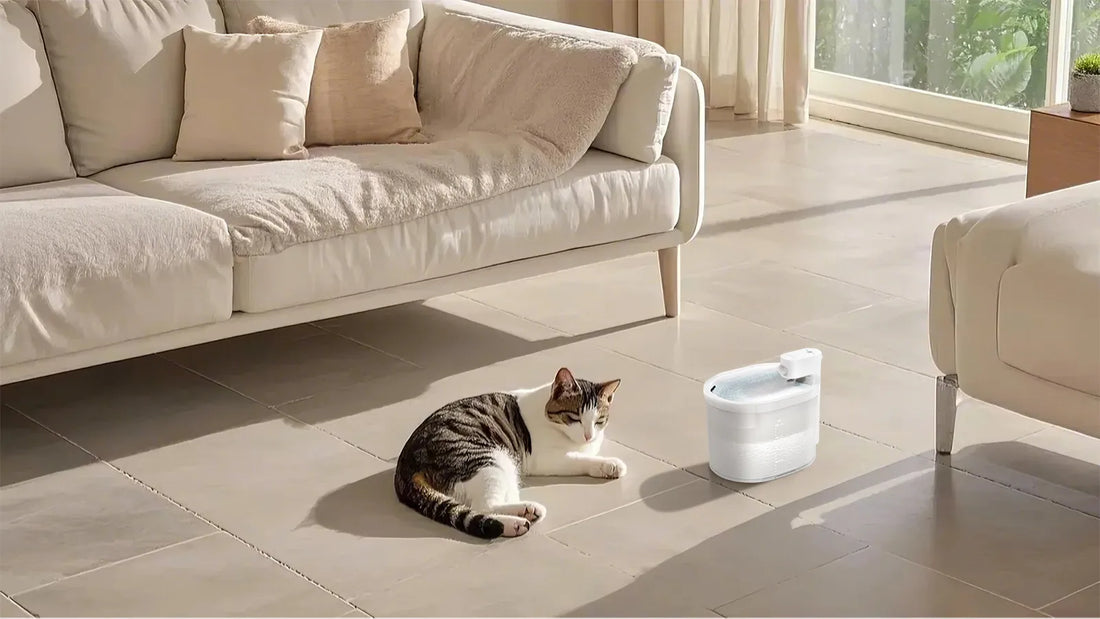If you've ever walked into a room only to find an unpleasant surprise waiting for you, you're not alone. Cat pooping outside the litter box is a common issue that many pet owners face. While it can be frustrating, it's important to understand that this behavior is often a sign that something is amiss. In this article, we'll explore the reasons behind this behavior and provide practical solutions to help you and your feline friend get back on track.
Understanding the Behavior
Before diving into solutions, it's crucial to understand why your cat might be pooping outside the litter box. Cats are creatures of habit, and any deviation from their usual routine can be a red flag. Here are some common reasons:
- Medical Issues: Health problems such as urinary tract infections, gastrointestinal disorders, or arthritis can make it difficult for your cat to use the litter box.
- Stress and Anxiety: Changes in the household, such as a new pet, a move, or even a change in your work schedule, can cause stress and lead to inappropriate elimination.
- Litter Box Preferences: Cats can be picky about their litter box. If it's too dirty, too small, or in a location they don't like, they may choose to go elsewhere.
- Territorial Marking: In multi-cat households, one cat may poop outside the litter box to mark its territory.
Medical Issues
If your cat suddenly starts pooping outside the litter box, the first step is to rule out any medical issues. Schedule a visit to the vet to check for underlying health problems. Conditions like constipation, diarrhea, or even more serious issues like kidney disease can cause discomfort and lead to inappropriate elimination. Once any medical issues are addressed, you can move on to behavioral solutions.
Stress and Anxiety
Cats are sensitive creatures, and changes in their environment can lead to stress and anxiety. If you've recently moved, introduced a new pet, or made any other significant changes, your cat might be feeling overwhelmed. To help your cat adjust, try to maintain a consistent routine and provide plenty of hiding spots and vertical spaces where they can retreat. Additionally, consider using pheromone diffusers to create a calming environment.
Litter Box Preferences
Cats have specific preferences when it comes to their litter box. If the box is too dirty, too small, or in a location they don't like, they may choose to go elsewhere. Here are some tips to ensure your cat's litter box meets their needs:
- Cleanliness: Scoop the litter box daily and change the litter completely at least once a week.
- Size: Make sure the litter box is large enough for your cat to move around comfortably.
- Location: Place the litter box in a quiet, low-traffic area where your cat feels safe.
- Type of Litter: Experiment with different types of litter to find one your cat prefers.
Territorial Marking
In multi-cat households, territorial marking can be a common issue. If one cat feels threatened by another, they may poop outside the litter box to mark their territory. To address this, ensure that each cat has their own litter box, plus one extra. This can help reduce competition and give each cat a sense of security. Additionally, provide plenty of resources like food, water, and scratching posts to minimize conflict.
Behavioral Solutions
Once you've addressed any medical issues and ensured that the litter box meets your cat's needs, you can focus on behavioral solutions. Here are some strategies to help curb the behavior:
- Positive Reinforcement: Reward your cat with treats or praise when they use the litter box correctly.
- Environmental Enrichment: Provide plenty of toys, scratching posts, and interactive play to keep your cat mentally and physically stimulated.
- Consistency: Maintain a consistent routine for feeding, playtime, and litter box cleaning.
-
Consult a Professional: If the behavior persists, consider consulting a veterinarian or a certified animal behaviorist for additional guidance.
Preventing Future Issues
Preventing your cat from pooping outside the litter box in the future requires ongoing attention and care. Regularly monitor your cat's health, keep the litter box clean, and provide a stable and enriching environment. By understanding your cat's needs and addressing any issues promptly, you can help ensure that your feline friend remains happy and healthy.
Dealing with a cat pooping outside the litter box can be challenging, but with patience and the right approach, you can resolve the issue and restore harmony to your home. Remember, your cat isn't trying to be difficult—they're simply trying to communicate that something isn't right. By addressing the root cause and providing a supportive environment, you can help your cat feel secure and content once again.













